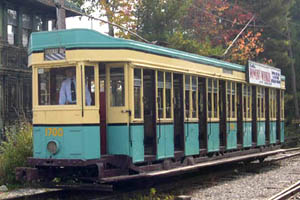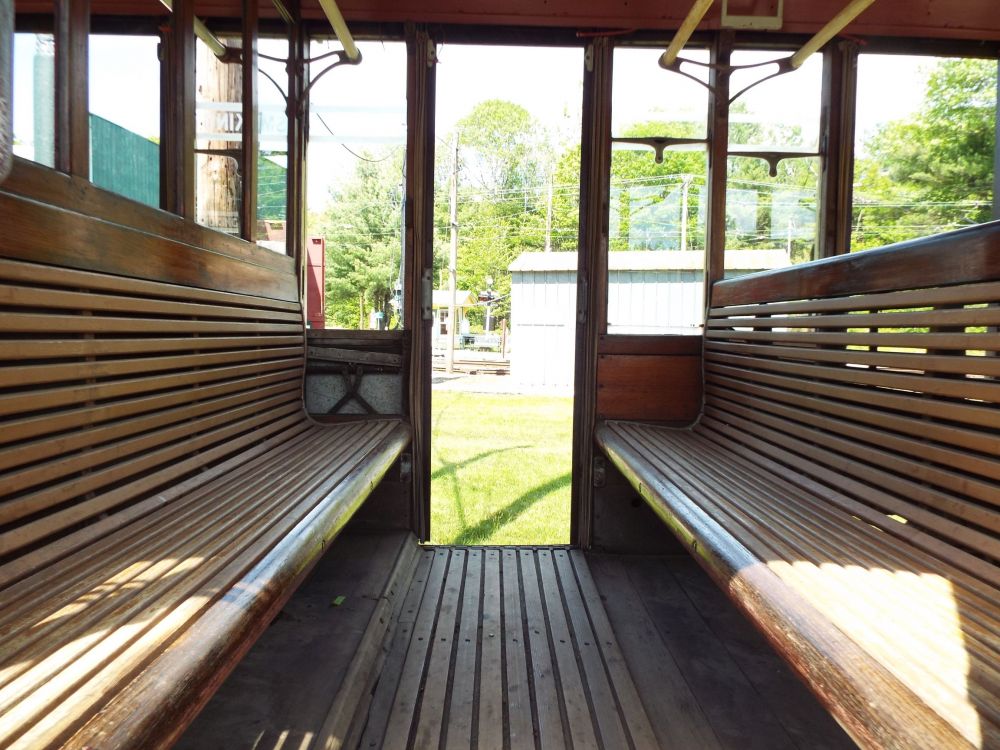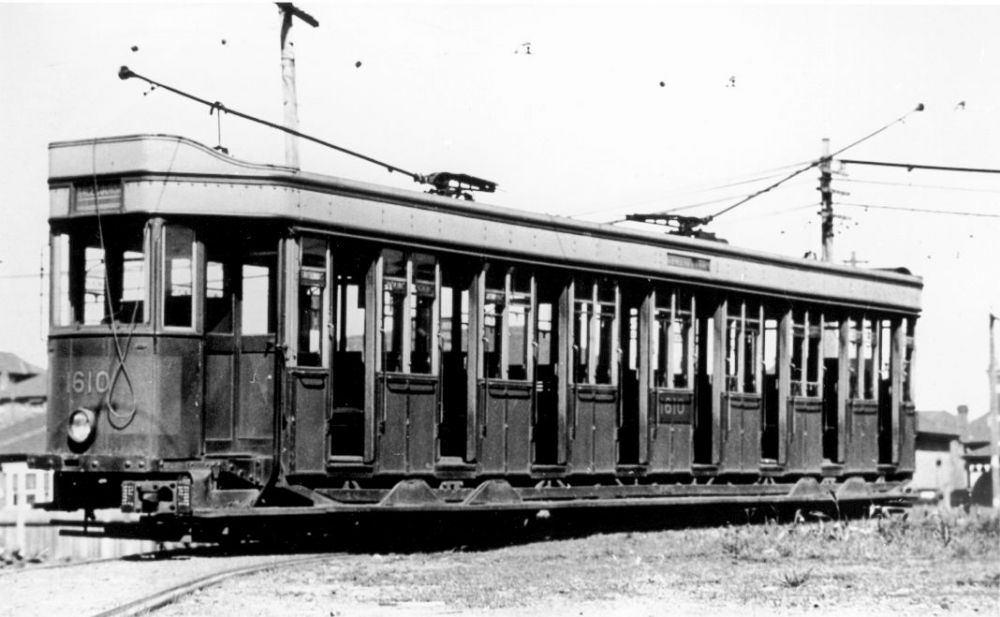
- Builder
- Meadowbank Manufacturing Co.
- Description
- Tram
- Secondary Use
- None
- Type
- City and Suburban Streetcars
- Year
- 1925
- Retired from Service
- 1960
- Acquired by the Museum
- 1961
- Note
- As of 2018, No. 1700 is in Riverside carbarn. The car is in operating condition but has had little use in recent years.
- Fund
- 860
Sydney Tramways 1700
From Sydney, New South Wales
History
At their peak, Sydney’s tramways were the largest in Australia and the second largest in the British Commonwealth (after London) with about 1500 trams in service. Between 1921 and 1929, the NSW Government Tramways purchased 258 P-Class trams, Nos. 1480-1737. Of these, Meadowbank Manufacturing Co. built 175, including No. 1700. Meadowbank build No. 1700 about 1925 (sources differ on the exact date.) Meadowbank, based in Sydney, was a producer of agricultural machinery as well as trams. The P-Class trams operated on most of Sydney’s lines. One route served Sydney’s famous Bondi Beach which generated immense demands for the city’s transportation system. To handle the crowds, the P-Class trams had 8 compartments, each seating 10 on wooden cross benches. There was no center aisle; each compartment was accessed only from running boards on the outside. Each compartment had folding canvass doors. The dangerous design required the conductor to walk along the outside running boards to collect fares. In rainy weather, conductors wore heavy oilskin raincoats. The conductors’ union unsuccessfully campaigned to eliminate the footboard trams. To simplify operations the cars were operated in two car trains. General Electric, of Schenectady, NY, supplied the multiple unit equipment. This long distance order was made because representatives from Sydney had inspected the Bay State Street Railway’s 4300 class cars, and were impressed with the control system. Thus, these very unusual Australian cars have a very American feel to operators. Some other unique aspects of the cars include almost flat roofs surrounded by a raised ornamental parapet, tight cabs, and narrow running boards. From the 1930s, many P-Class trams, including No. 1700, carried large, illuminated advertising panels mounted on the roof line. Sydney retired the last P-Class trams in 1960; all tram service ended in 1961. In 1997, Sydney opened a modern, light rail system.
In 1961, Seashore president Theodore (Ted) Santarelli de Brasch sponsored the purchase of No. 1700 for 100 Australian pounds. No. 1700 was shipped to the U. S. that year and has required occasional painting and roof repairs but no heavy repair work. Seashore and its cousin, the Sydney Tramway Museum, have worked together to obtain and share needed parts for this car and two sister cars “down under.” Seashore has operated No. 1700 in passenger service at various times, but the car’s relatively tiny wheel flanges limits the car’s use. Because Sydney was Australia’s largest city and because the capital, Canberra, never had streetcars, Seashore historian Ben Minnich thought No. 1700 partially qualified for the museum’s Great World Capitals collection.
Technical Information
- Seats: 80
- Control: PC-5 (C-129D)
- Brakes: Straight Air
- Compressor: DH-16
Trucks
- Number: 2
- Manufacturer: Sydney
- Model: No. 9
Motor
- Number: 4
- Manufacturer: General Electric
- Model: 247
Weight and Dimensions
- Length: 45’ 5.00"
- Width: 8’ 8.00"
- Height: 11’ 10.00"
- Weight: 36000 lbs.
Additional Images

Kenyon F. Karl on 06/08/19

Sister car 1610 - Tom Santarelli Collection
© 1998 - 2026 New England Electric Railway Historical Society. All Rights Reserved.